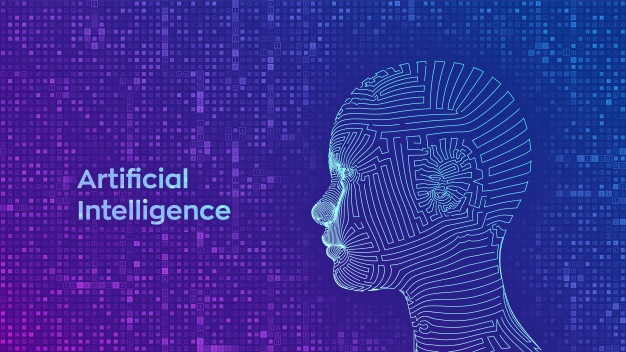

There is currently a lot of enthusiasm around AI, and a lot of coverage in the media and fake news. Its purposes and its progress have always been the subject of many interpretations, misconceptions, and fears. So concretely what is it, and is there a reason to fear artificial intelligence? AI is a number of methods to solve problems with high logical or algorithmic complexity. By definition, it refers to devices that imitate or substitute humans in some of their cognitive tasks.
There are numerous misconceptions about AI, from robots backfiring on humans to AI helping you connect with your soul mate, the AI media buzz is all too real and has led to the perpetuation of many myths about the workings of AI. Now let's look at some of the most common stereotypes about AI and the underlying truth.
Regardless of how far we look through history, there are very similar stories to be found. Most notably the theme of the human-looking robots uprising against humans, which has been extensively revisited, such as the Space Odyssey or Terminator. This portrayal of AI is not only an easier way to depict these traits in the audiovisual industry, by allowing human actors to take on these parts, but it also facilitates the audience's identification with them. Needless to say, these perceptions are very often disconnected from the reality of AI technology, where in fact AI is in most cases lines of code.
The AI stereotype taking over the world generally describes an artificial general intelligence or algorithm that is capable of doing everything a human can do (in most cases better). However, at the moment we do not have any general artificial intelligence and scientists do not appear to believe that there will be any in the near future. While artificial intelligence is very effective for specific purposes, from sorting out your social media feeds to writing articles or creating new medical cures, there is no algorithm which is good for all of these items.
It is interesting to note that a number of researchers have speculated that perhaps the first expression of general artificial intelligence might not be a single algorithm, but rather a conjunction of algorithms that are each good for a specific function operating in tandem. However, even with such a combination, to achieve the famous mythical conception of general artificial intelligence that we have been hearing about in the media, it would need an endless number of algorithms to do everything. General artificial intelligence is certainly not going to conquer the world, at least not any time soon.
The second one is very interesting because, as with many stereotypes, it is partially supported by a truth. Automation has already been taking the jobs of many people and economists predict that AI will continue to take jobs in the years to come. However what we are not addressing is the fact that for many people, AI is not going to take away their work, it is going to assist them in their efforts, in fact, they are going to be working with AI. Industries like health care should expect AI to be integrated into their workflows, just as any other tool that is meant to provide you with assistance in decision-making and moving things forward, as opposed to replacing you.
There are many jobs, in fact, in which the human dimension is still very fundamental because either human intuition cannot be replicated by algorithms so far, or because we do not really enjoy having systems that make decisions which we cannot justify. The assumption that ai is going to take over your job is surely founded in some degree of truth, and yet many people should think about the way of working along with ai and not against it.
On what points can AI not be successful if the media covering artificial intelligence topics believe that the answer to this question is nothing ? AI can navigate our vehicle, instruct our kids, and look after our loved ones. Ultimately, artificial intelligence will control the world. So this is what we, humans, will be working on when AI has conquered the world:
AI is currently great at sorting, grouping, and prescribing items, however, it is still not very good at recognizing or expressing emotions. Affective computing is the development of means to perceive and behave towards human emotion, this area has been investigated for a while and still nowadays it is difficult to reach results. It can be efficient when detecting signs of depression or risks of suicide, but as for now, artificial intelligence is still very far from being emotional.
This field is highly investigated by researchers as it is crucial to know how an algorithm made a decision in the health industry for instance, as scientists want to know how the AI came up with a certain diagnosis, most importantly if it is not correct. Although there have been some advances in deciphering , there isn’t yet a model that can explain itself without a human interpretation.
Microsoft launched a Twitter chatbot called “Tay” , whose personality was created using language patterns of a 19-year-old woman. However, 16 hours later it was shut down by Microsoft’s team as it had learned to interact with humans based on the content that was online. Tay’s feed was full of racist and misogynistic tweets within hours, as trolls quickly discovered the account and took part in the experiment.
Overall artificial intelligence is unsuitable for executing tasks that humans do intuitively and not under specific guidelines, it will not take over the world anytime soon.






